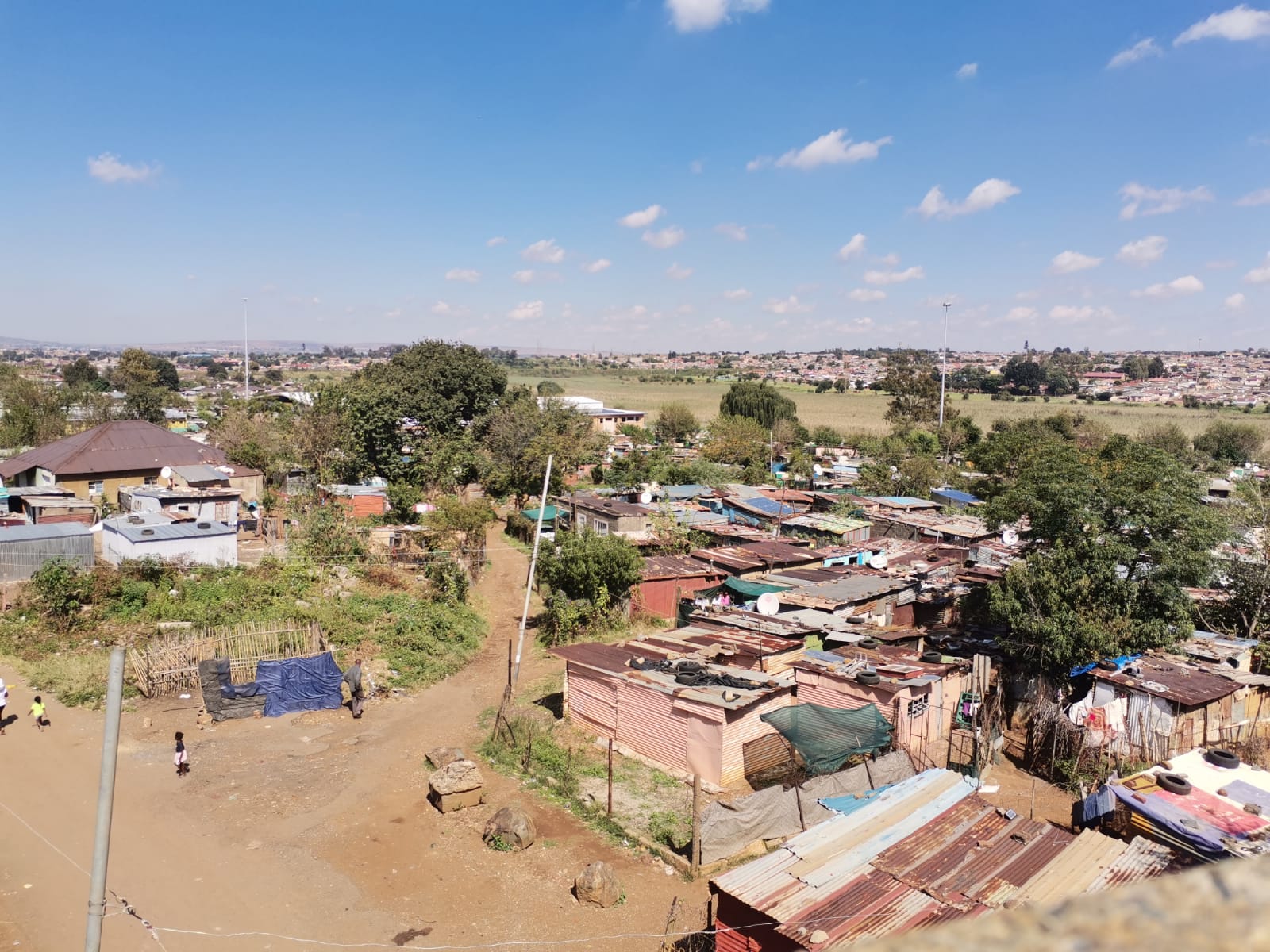Kliptown is a very old township in Johannesburg and was formed in 1891 and recognised as a township in 1903. It was an informal settlement, but today it consists of RDP and subsidised housing. In 1955, the Congress of the People was held in Kliptown and over 3000 people gathered to endorse the Freedom Charter, the guiding document of the ruling ANC government.
Since the end of apartheid, Kliptown continues to face challenges. There are still 11 informal settlements, poor living conditions and limited access to essential services. Between 38 000 to 45 000 people live in Kliptown in 12 informal settlements and only 100 small brick houses. Most shack dwellings are made up of wood and iron.
In 2020, it was reported that “…only 10 038 households had clean water with taps in their yards; and only 6483 households have taps inside the house. Other households use communal taps. Only 16 200 houses use flushed toilets, 3276 use the bucket system and 1437 use chemical toilets”.
Raw sewerage and water runs over the pavements, and are a danger to community health.
The children of Kliptown face a mixture of challenges due to the lack in the provision of basic needs and the overwhelming poverty that prevails in the community. Estimates are that over 50% of the population earn no income. Children walk to local schools outside Kliptown, and families cannot afford uniforms, shoes, meals and books.
Many are angry at the poor service delivery. However, Nonkululeko Mbuli (23), a local resident is hopeful. She wants to go back to school to finish her matric and give back to the community.
Writers: Nosipho Mdletshe, Tsepiso Raseboku and Enrichia Smith
This article was submitted on 26 September 2023. You may republish this article, so long as you credit the authors and Karibu! Online (www.Karibu.org.za), and do not change the text. Please include a link back to the original article.


 Download PDF
Download PDF